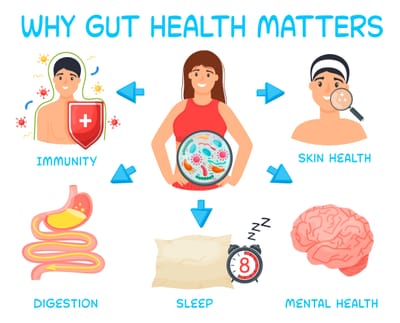On this page
Alcohol has been ingrained in social culture for centuries, but the science surrounding its health effects tells a different story. Despite its popularity, alcohol consumption is linked to numerous health risks and is classified as a Group 1 carcinogen by the International Agency for Research on Cancer (IARC)—the same category as tobacco and asbestos. This article explores the biological impact of alcohol on the body, debunks the “moderate drinking” myth, and examines the social challenges faced by those choosing to abstain.
The Health Risks of Alcohol: A Look at the Science
While many people view moderate alcohol consumption as harmless or even beneficial, research increasingly shows that no amount of alcohol is truly safe. Alcohol impacts nearly every organ in the body, and its toxic byproducts can cause significant harm.
- Carcinogenic Properties
Alcohol is a Group 1 carcinogen, meaning there is sufficient evidence linking it to cancer in humans. Alcohol consumption is associated with increased risk of cancers of the mouth, throat, esophagus, liver, colon, and breast. Even moderate drinking has been shown to elevate cancer risk, with studies indicating that each drink raises breast cancer risk in women by about 7-10%. Alcohol’s carcinogenic effects are largely due to acetaldehyde, a toxic byproduct formed when the liver metabolizes alcohol. - Impact on the Liver
The liver, tasked with breaking down alcohol, bears the brunt of alcohol’s toxic effects. Each time alcohol is processed, it produces acetaldehyde and reactive oxygen species, which damage liver cells. Over time, heavy drinking can lead to liver diseases such as fatty liver, hepatitis, and cirrhosis. Even light drinking can impair liver function, as the liver prioritizes alcohol breakdown over other metabolic processes, affecting fat and carbohydrate metabolism. - Brain Health and Cognitive Function
Alcohol is neurotoxic, meaning it damages brain cells and affects brain function. Regular alcohol consumption can alter brain chemistry, impairing cognitive abilities, memory, and emotional regulation. Studies have shown that alcohol shrinks brain volume, particularly in areas responsible for learning and memory, and that heavy drinking can significantly increase the risk of dementia and cognitive decline later in life. - Gut Health and Immune System Suppression
Alcohol disrupts the gut microbiome, impairing gut barrier function and leading to “leaky gut.” This condition allows toxins and inflammatory molecules to pass from the gut into the bloodstream, triggering systemic inflammation. This inflammation stresses the immune system and has been linked to autoimmune disorders, metabolic diseases, and cardiovascular issues. - Hormonal and Metabolic Disruptions
Alcohol disrupts hormone regulation, impacting insulin sensitivity, cortisol levels, and reproductive hormones. These disruptions contribute to weight gain, particularly around the abdomen, and increase the risk of insulin resistance and type 2 diabetes. Alcohol also interferes with sleep quality, disrupting deep and REM sleep, which are essential for metabolic and hormonal balance. - Heart Health
Despite claims that moderate drinking (especially red wine) benefits heart health, more recent studies reveal that alcohol’s negative effects outweigh any minor benefits. Alcohol raises blood pressure, increases triglyceride levels, and contributes to arterial stiffness, all of which elevate cardiovascular disease risk. Additionally, excessive alcohol consumption weakens heart muscle tissue, increasing the risk of heart failure.
Alcohol Use in Society: Navigating Social Expectations
Although the health risks of alcohol are well-documented, the social pressures to drink can make it challenging for individuals to abstain. Here’s a look at why alcohol remains embedded in social settings and strategies for managing these situations.
- Alcohol as a Social Norm
Alcohol is ubiquitous in many social settings, from family gatherings to business events, and is often viewed as a way to relax, celebrate, or bond. Choosing not to drink can lead to unwanted questions or pressure to conform. This norm is pervasive, with 60% of U.S. adults reporting alcohol consumption in the past month, and about 16% engaging in binge drinking. Globally, alcohol use contributes to almost 6% of annual deaths, yet it remains socially ingrained. - Professional and Networking Challenges
In professional circles, networking events frequently involve alcohol, and abstaining can sometimes feel socially or professionally isolating. Declining a drink at a work event may require careful navigation to avoid awkwardness, especially in cultures where drinking is intertwined with team bonding. - Social Pressure and Peer Influence
Friends, family, and peers can unintentionally exert pressure by questioning or encouraging alcohol use. Comments like “just one drink” or “it’s a celebration” are common, often leading individuals to drink despite personal reservations. Studies show that peer influence significantly affects alcohol consumption patterns, especially among young adults. - Alcohol and Mental Health
Alcohol is often used as a social lubricant to reduce anxiety in social situations. However, regular alcohol consumption can worsen anxiety and depression over time. Choosing to avoid alcohol for mental health reasons is valid, but the social stigma around abstaining can create challenges, particularly for those with social anxiety or mood disorders.

Strategies for Navigating Alcohol-Free Choices
For those who choose to avoid alcohol, here are some strategies for managing social situations where alcohol is present:
- Prepare a Simple Explanation
Having a quick, confident response for why you’re not drinking can help reduce social pressure. Statements like “I feel better without it” or “I’m focusing on my health” are straightforward and often sufficient. - Bring Your Own Non-Alcoholic Drink
Bringing a favorite non-alcoholic option, such as sparkling water with lime, kombucha, or herbal tea, allows you to participate in the social experience without drinking. Many people will respect your choice and may even join you. - Practice Assertiveness
Standing firm in your decision, even when facing social pressure, is key. Setting boundaries and politely declining offers without over-explaining can help reduce the likelihood of continued questioning. - Find Alcohol-Free Spaces or Events
More social circles are beginning to embrace alcohol-free events, especially as awareness grows around the risks of drinking. Explore alcohol-free gatherings or suggest meetups where drinking isn’t the focus, such as outdoor activities, brunch, or coffee outings. - Prioritize Healthier Social Alternatives
Choosing alcohol-free events or participating in group activities where drinking isn’t the focal point, like hiking, going to a movie, or attending a fitness class, helps foster meaningful connections without relying on alcohol.
While alcohol is deeply embedded in social culture, the science is clear: there is no safe level of alcohol consumption, and even moderate drinking poses health risks. From cancer and liver damage to cognitive impairment and hormonal disruption, the adverse effects of alcohol extend beyond what many realize. Navigating social expectations can be challenging, but by preparing for social situations, setting boundaries, and prioritizing health, it’s possible to enjoy meaningful connections and social interactions without compromising well-being.
References
- World Health Organization (WHO). "Global Status Report on Alcohol and Health."
- Centers for Disease Control and Prevention (CDC). "Alcohol and Public Health."
- International Agency for Research on Cancer (IARC). "Alcohol Consumption and Ethyl Carbamate."










